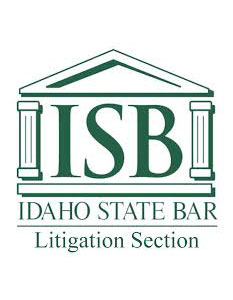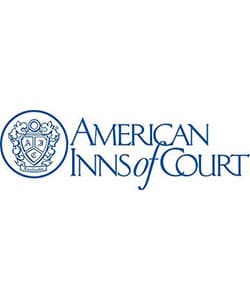Dram shop liability is a concept that holds alcohol vendors, such as bars, restaurants, and liquor stores, responsible for damages caused by an intoxicated person to whom they served alcohol. The principle behind this is that vendors who profit from selling alcohol should also bear some responsibility for ensuring that their patrons do not cause harm to others. However, the question often arises: Is dram shop liability limited only to these vendors, or can social hosts—those who serve alcohol in a private setting—also be held accountable for the actions of their guests? This question is significant, especially in a society where social gatherings frequently involve alcohol. Understanding the extent of dram shop liability and the potential legal responsibilities of social hosts is crucial for anyone who serves alcohol, whether in a commercial or private setting.
The Legal Foundation of Dram Shop Liability
The concept of dram shop liability has its roots in common law, evolving over time as societies have recognized the need to address the harm caused by intoxicated individuals. Traditionally, this form of liability was limited to alcohol vendors, who were seen as having a higher degree of responsibility due to their commercial role in serving alcohol. These businesses are expected to adhere to strict regulations regarding the sale of alcohol, such as not serving minors or visibly intoxicated individuals. When these regulations are violated, and harm results, the vendor can be held liable for damages. The idea is that alcohol vendors are in a unique position to monitor the consumption of alcohol and to take steps to prevent over-serving. By holding vendors accountable, dram shop laws aim to reduce the number of alcohol-related incidents, such as drunk driving accidents or assaults.
In many states, dram shop laws are well-established, providing clear guidelines for when and how vendors can be held liable. These laws vary from state to state, with some imposing strict liability on vendors, while others require proof of negligence or intentional misconduct. The specific circumstances under which a vendor can be held liable are often outlined in state statutes, which also define the potential damages that can be awarded to victims. Typically, these damages may include medical expenses, lost wages, pain and suffering, and in some cases, punitive damages intended to punish particularly egregious behavior.
The Extension of Liability to Social Hosts
While dram shop liability traditionally applies to commercial vendors, the question of whether social hosts can be held accountable has been the subject of much legal debate. Social hosts are individuals who provide alcohol to guests in a non-commercial setting, such as a private party or social gathering. Unlike vendors, social hosts are not engaged in the business of selling alcohol, and their primary purpose is often to entertain friends, family, or acquaintances. Given this difference, some might argue that social hosts should not be held to the same standard of responsibility as commercial vendors. However, others contend that social hosts can also contribute to the problem of alcohol-related harm by allowing their guests to become intoxicated and then letting them drive or engage in other risky behaviors.
The legal landscape regarding social host liability is complex and varies widely across jurisdictions. In some states, social hosts can be held liable under specific circumstances, particularly when they serve alcohol to minors or to individuals who are visibly intoxicated. These cases often hinge on the idea that social hosts, like vendors, have a duty to prevent foreseeable harm by exercising reasonable care in their actions. For example, if a social host provides alcohol to a minor who then causes a car accident, the host may be held liable for the resulting damages. Similarly, if a host knowingly serves alcohol to someone who is already intoxicated and that person later injures someone else, the host could potentially face legal consequences.
In states where social host liability is recognized, the standards for proving liability can be stringent. Plaintiffs typically need to demonstrate that the host knew or should have known that the guest was intoxicated and that the host’s actions directly contributed to the harm that occurred. This can be a challenging burden of proof, as it often requires evidence of the host’s knowledge and intent, as well as a clear causal link between the host’s actions and the injury. Despite these challenges, social host liability is an important legal concept that reflects the broader societal concern with preventing alcohol-related harm and ensuring that those who serve alcohol act responsibly.
Comparing Vendor and Social Host Liability
While both vendors and social hosts can potentially be held liable for the actions of intoxicated individuals, there are significant differences in how the law approaches each type of case. Vendors are subject to a higher standard of care due to their commercial role in serving alcohol, and they are typically more closely regulated by state and local laws. This includes mandatory training for employees, strict limits on serving alcohol to minors, and requirements to refuse service to intoxicated patrons. As a result, vendors are often more aware of their legal obligations and the potential consequences of over-serving alcohol.
In contrast, social hosts may not be as familiar with the legal risks associated with serving alcohol, and they may not be subject to the same regulatory oversight. However, this does not mean that social hosts are immune from liability. In jurisdictions where social host liability is recognized, hosts are expected to exercise reasonable care in serving alcohol, just as vendors are. This includes monitoring the amount of alcohol consumed by guests, ensuring that minors do not have access to alcohol, and taking steps to prevent intoxicated guests from driving. While the legal consequences for social hosts may not be as severe as those for vendors, they can still face significant financial and legal repercussions if they fail to act responsibly.
One of the key differences between vendor and social host liability is the scope of damages that can be awarded. In many cases, the potential damages in a social host liability case may be lower than those in a dram shop case involving a vendor. This is partly because vendors, as commercial entities, are often seen as having deeper pockets and a greater ability to pay large settlements or judgments. However, social hosts can still be held liable for a wide range of damages, including medical expenses, property damage, and in some cases, punitive damages. The specific amount of damages awarded will depend on the facts of the case and the applicable state law.
Verdicts & Settlements
Public Policy Considerations and the Future of Social Host Liability
The question of whether social hosts should be held liable for the actions of their guests is not just a legal issue but also a matter of public policy. Proponents of social host liability argue that holding hosts accountable can help reduce the incidence of alcohol-related harm by encouraging responsible behavior. By imposing legal consequences on those who serve alcohol in a private setting, the law can deter reckless or negligent conduct and promote a culture of responsibility around alcohol consumption. This is particularly important in cases involving minors, who may be more vulnerable to the effects of alcohol and more likely to engage in risky behaviors.
Opponents of social host liability, on the other hand, argue that it places an unfair burden on individuals who may not have the same level of control over their guests as commercial vendors do. They contend that social hosts should not be held to the same standard as vendors, who are trained and licensed to serve alcohol and who operate in a commercial environment with clear rules and regulations. Furthermore, opponents argue that extending liability to social hosts could have a chilling effect on social gatherings, as individuals may be reluctant to host events for fear of legal repercussions.
As society continues to grapple with the issue of alcohol-related harm, the debate over social host liability is likely to continue. Some states may choose to expand their dram shop laws to include social hosts, while others may opt to maintain a more limited approach. Ultimately, the direction of the law will depend on a variety of factors, including public opinion, legislative priorities, and the evolving understanding of the role that alcohol plays in society. Regardless of the outcome, it is clear that the issue of social host liability is an important one that will continue to shape the legal landscape in the years to come.
Whether you are a vendor or a social host, understanding your legal responsibilities when it comes to serving alcohol is crucial. The laws surrounding dram shop and social host liability are complex and vary widely from state to state, making it essential to seek professional legal advice if you are involved in a situation where liability may be an issue. If you are facing a potential liability claim or need guidance on how to protect yourself from such claims, the experienced attorneys at Hepworth Holzer, LLP are here to help. With a deep understanding of the legal principles involved and a commitment to providing personalized service, our team can assist you in navigating the complexities of dram shop and social host liability. Contact Hepworth Holzer, LLP today to discuss your case and learn how we can help you protect your rights and interests.











